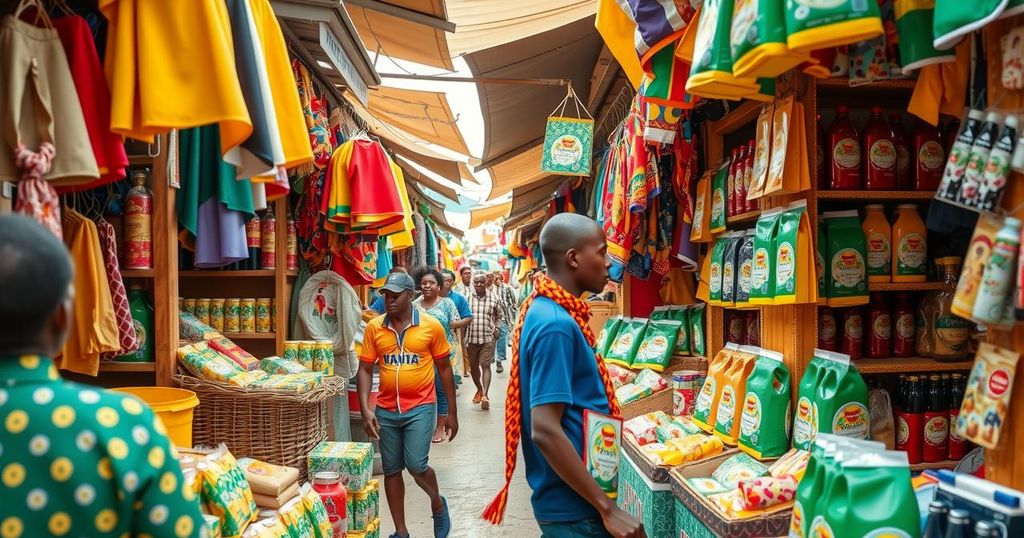Nigerian consumers exhibit strong brand loyalty as a strategy for navigating uncertainty. This loyalty, referred to as an “uncertainty tax,” influences purchasing decisions, prioritizing stability and trust over new alternatives. Effective businesses reduce uncertainty through reliable practices, thereby fostering enduring customer relationships amidst challenges. Consumer behavior reflects rational decision-making rooted in the desire for certainty.
In a local store in Surulere, Lagos, Mrs. Adeyemi is steadfast in her choice of laundry detergent, preferring the well-known brand Omo over a cheaper, newer option. This reflects a broader trend in Nigerian consumer behavior, where brand loyalty is influenced not merely by product consistency or quality, but by fundamental human aspects such as the management of uncertainty and risk.
Nigerians often encounter what behavioral economists term an “uncertainty tax,” where they pay a premium to avoid the potential higher costs associated with wrong choices. For example, when there is a power outage and an unresponsive generator creates a crisis, the consequences of a poor purchasing decision extend beyond financial implications; they could have severe ramifications in daily life, particularly in sectors such as healthcare, where safety nets are minimal.
When institutional guarantees in a society are shaky, loyalty goes beyond mere preference; it acts as a protective mechanism. In stable markets, consumers tend to explore new options due to the safety nets provided, but in Nigeria, established brands offer a form of assurance that new, untested products cannot match, hence consumers engage in conservative spending.
The current landscape illustrates that brand loyalty is not simply born out of risk aversion; it serves as an adaptive strategy tailored to navigate the complexities of everyday life in Nigeria. This loyalty is vividly observed in mobile banking, where familiar banking apps retain users even amid failures, as the sense of trust becomes more significant than the innovation of new technology.
Businesses that successfully foster consumer loyalty understand the importance of mitigating uncertainty. For example, GTBank’s successful entry into digital banking stemmed from providing reliable customer service, consistent user interfaces, and accessible physical branches for in-person assistance. Similarly, Indomie noodles established trust through reliable availability and community involvement in addition to affordability.
This trust leads to a loyalty paradox: once established, loyal customers tolerate some failures of their trusted brands due to the fear of switching to unproven alternatives. Consumers are likely to wait in long lines at their preferred fuel stations instead of risking uncertainty elsewhere. Conversely, this loyalty makes it challenging for new entrants who must overcome sophisticated consumer apprehensions and prove their value convincingly.
Thus, Nigerian firms need to revise their loyalty strategies. True customer loyalty is cultivated through comprehensive efforts to reduce uncertainty at various customer touchpoints rather than relying on traditional loyalty programs. This requires businesses to invest in trust-generating factors, including seamless integration of online and offline services, clear problem resolution timelines, and proactive communication regarding issues preceding customer reports.
Understanding that Nigerian consumers calculate the risk of change rationally is pivotal. The businesses that succeed are those that do not just provide products but rather offer stability and certainty, a highly valuable commodity within the Nigerian market today.
In conclusion, Nigerian consumer brand loyalty is intrinsically linked to the management of uncertainty. The concept of an “uncertainty tax” describes the additional costs borne by consumers in avoiding the risks associated with untested alternatives. Successful businesses recognize that building loyalty relies on creating reliable, trustworthy experiences rather than merely focusing on product features and marketing tactics. By addressing consumer needs for assurance and stability, companies can build enduring relationships and thrive in a competitive landscape.
Original Source: businessday.ng




